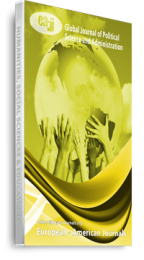The perception that Nigeria is a corrupt country has persisted for decades in spite of measures taken by successive administrations to mitigate it. This study explores the factors that encourage corruption in the Political System. It relies on the explanatory variables of Prebendal Theory. Employing survey research design, data were generated through interviews and documents and analyzed using content analysis. The central argument in the study is that, there are Mores and Belief Systems, rooted in Nigerian culture that encourages corruption. This is encapsulated in a Nigerian proverb: “One, whose father is in heaven, cannot be destined for hell”. The proverb purports that a public office holder must use the appurtenances of his office to benefit his cronies and relatives. The study recommends a cultural and moral reorientation to correct the erroneous impression that public office is a platform for dispensing prebends to relatives and cronies.
Keywords: Corruption, cronyism, mores., nepotism, prebendalism

